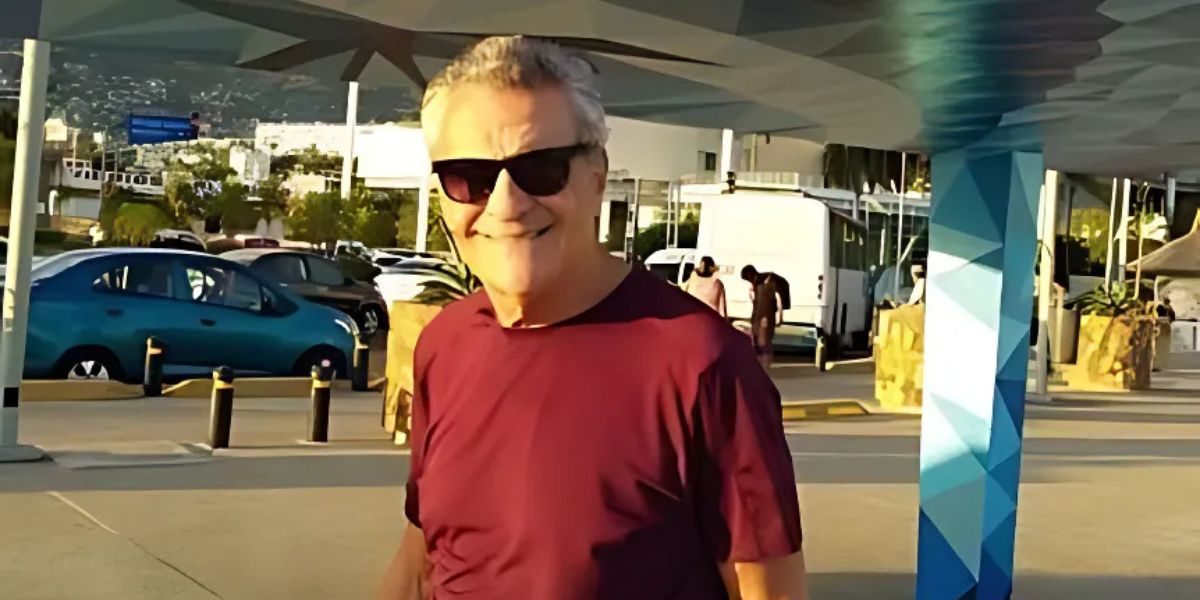Introduction
These days, there is an extreme urgency to protect our planet in a world where the climate crisis is becoming increasingly unavoidable. For most of his life, Venezuelan businessman, writer, and environmental advocate Jorge Partidas has observed the personal and political effects of ecological degradation. He is the change we are undergoing, the transformational moment we are at today. Partidas believes the COP30 in Brazil next week could be a turning point in rethinking Sovereignty, the environment, and who is responsible for the planet’s future.
Jorge Partidas’ Environmental Vision
Jorge Partidas’ ecological approach is based on this philosophy of environmental Sovereignty. According to him, the traditional concept that countries have inalienable rights over their resources causes ecological degradation. Partidas instead advocates that the global environment is a shared responsibility and a collective stewardship of an entity. The fundamental premise of Partidas’ argument is the distinction between Good Sovereignty and Bad Sovereignty. Good Sovereignty, as he sees it, acknowledges the unity of ecosystems and demands that nations be responsible for the environmental impact of their dealings toward ecosystems, even across borders. However, bad Sovereignty is the old model of international relations in which organizations exploit natural resources without regard for the long-term impacts.
Real-world examples of this shift in thinking are highlighted by the billions of people living in Brazil, the country’s natural wealth, and its significance to global sustainability. Murilo Johas Menezes’ paper makes a very nice point: Brazil is precisely both a challenge and an opportunity for environmental governance. Although the country is a global leader in clean energy and carbon sequestration, it is still losing critical ecosystems, such as the Amazon, to deforestation and resource exploitation. In this sense, it reaffirms Partidas’ plea for the redefinition of Sovereignty as the right to extract rather than the obligation to protect the Earth for the sake of succeeding generations. If nations like Brazil adopt this perspective, they can serve as good examples of sustainable development by striking a balance between economic growth and environmental responsibility.
Chico Mendes and Renny Ottolina: Inspiring Martyrs for Environmental Justice
Based on the examples of Renny Ottolina and Chico Mendes, who died fighting for environmental and social justice, Partidas underscores the necessity of systemic change.
A Brazilian environmental activist, Mendes dedicated his life to saving the Amazon rainforest and preserving the rights of Indigenous peoples to their ancestral lands. A reminder of the dangers facing those who work to challenge unsustainable development is that he was assassinated in 1988 by landowners hoping to exploit the land. The Menezes article highlights the ongoing issues that still threaten the Amazon today: deforestation, mining, and industrial agriculture, which continue to erode the Amazon as they have for many years. Mendes’ struggle is part of a broader environmental justice movement that requires corporations and governments to be accountable for their actions, which have global repercussions.
Likewise, Renny Ottolina, a Venezuelan media personality and activist, played a crucial role in raising public awareness about environmental protection. Although Mendes’s contributions are not as widespread as those of his counterparts, they represent the intersection of environmentalism and social justice through his efforts to advocate for sustainable resource management in Venezuela.
The article notes that their activism aligns with broader global activism. On the other hand, Brazil is a potential leader not only in the worldwide fight against deforestation but also in terms of sustainable development and carbon capture. It is particularly relevant in this context that Brazil is a ‘climate launchpad’ with significant natural capital and burgeoning climate startups, as Mendes has been fighting for the Amazon. For Partidas, these figures are martyrs fighting for ecological justice in a war that is still to be waged; they must engage in a global effort to protect the ecosystems and the communities they rely on.
A Proposal for Change
As Partidas’ voice is to be heard at COP30 in Brazil, his one point of contention is that there is a paradigm shift towards Environmental Sovereignty and a renewed commitment to global cooperation in protecting our ecosystems. He believes it can be implemented globally through a few concrete steps.
Partidas suggests that the environment could benefit from being viewed as a shared resource that extends beyond national borders. He proposes that international agreements encourage nations to take actions aligned with protecting the balance of the Earth’s ecology. Achieving global consensus on this idea could help governments, businesses, and individuals prioritize environmental preservation and conservation efforts.
Partidas proposes that dedicating COP30 to Chico Mendes could be a meaningful way to honor his legacy. Doing so could encourage world leaders to reaffirm the importance of protecting the Amazon and acknowledge the sacrifices made by those who have fought for its preservation. The Amazon rainforest plays a crucial role as a carbon sink for the planet, underscoring the importance of its continued protection. Partidas believes that recognizing Mendes’ contributions could inspire renewed global efforts to safeguard the Amazon and other vital ecosystems.
Partidas acknowledges that meaningful change may be challenging, given the resistance from powerful political and financial interests. Industries that rely on deforestation, mining, and fossil fuels might be hesitant to support Environmental Sovereignty, as it could impact their business models. Additionally, some governments may be reluctant to implement policies that restrict resource extraction, often due to a focus on short-term economic growth over long-term environmental protection.
Partidas, however, is adamant that the short-term benefits of environmental destruction outweigh the long-term benefits of protecting the environment. In his view, if ecological protection becomes an organizing principle of governance, with its proceeds used to provide for the people, countries will be able to foster a more sustainable and prosperous future. According to him, it’s not only an environmental mandate but an economic and moral one.
Conclusion
In the run-up to COP30 and the next decade, the world’s eyes are fixed on what will be, and the question is, will we step up to the challenge? Will we give more value to the health of Earth over the short-term profits of industries that have prospered for a long time on the Earth’s resources? Jorge Partidas sends a message: nature’s munificence never endures. The time to act is now. By applying the principles of Environmental Sovereignty, honoring Chico Mendes’ legacy, and embracing our so-called ‘sovereignty’ to keep pace with today’s times, we can change our destiny. The Amazon is not too late; we can still save it and protect the Earth and its people so future generations can inherit a world worth living in. However, this change requires collective action and an active commitment to the belief that the health of the Earth must be at the forefront of global priorities. We cannot afford anything less.
Name: Jorge Partidas A.
Born in Caracas, Venezuela, born 27 Sept. 1938 (86 years), Writer, six novels published in Spanish, essayist, lawyer, environmentalist, living in Mexico since 2019, English and Spanish.
Email: jorgepartidas@gmail.com
Contact: +52 1 744 123 4513
Disclaimer: The content presented is for informational purposes only and should not be construed as legal, environmental, or political advice. While efforts have been made to ensure the accuracy of the information, the rapidly evolving nature of environmental issues may result in changes not reflected here. Readers are encouraged to consult relevant experts and sources for more detailed guidance on matters related to environmental sovereignty, policy, and global cooperation.
Published by Mark V.

















